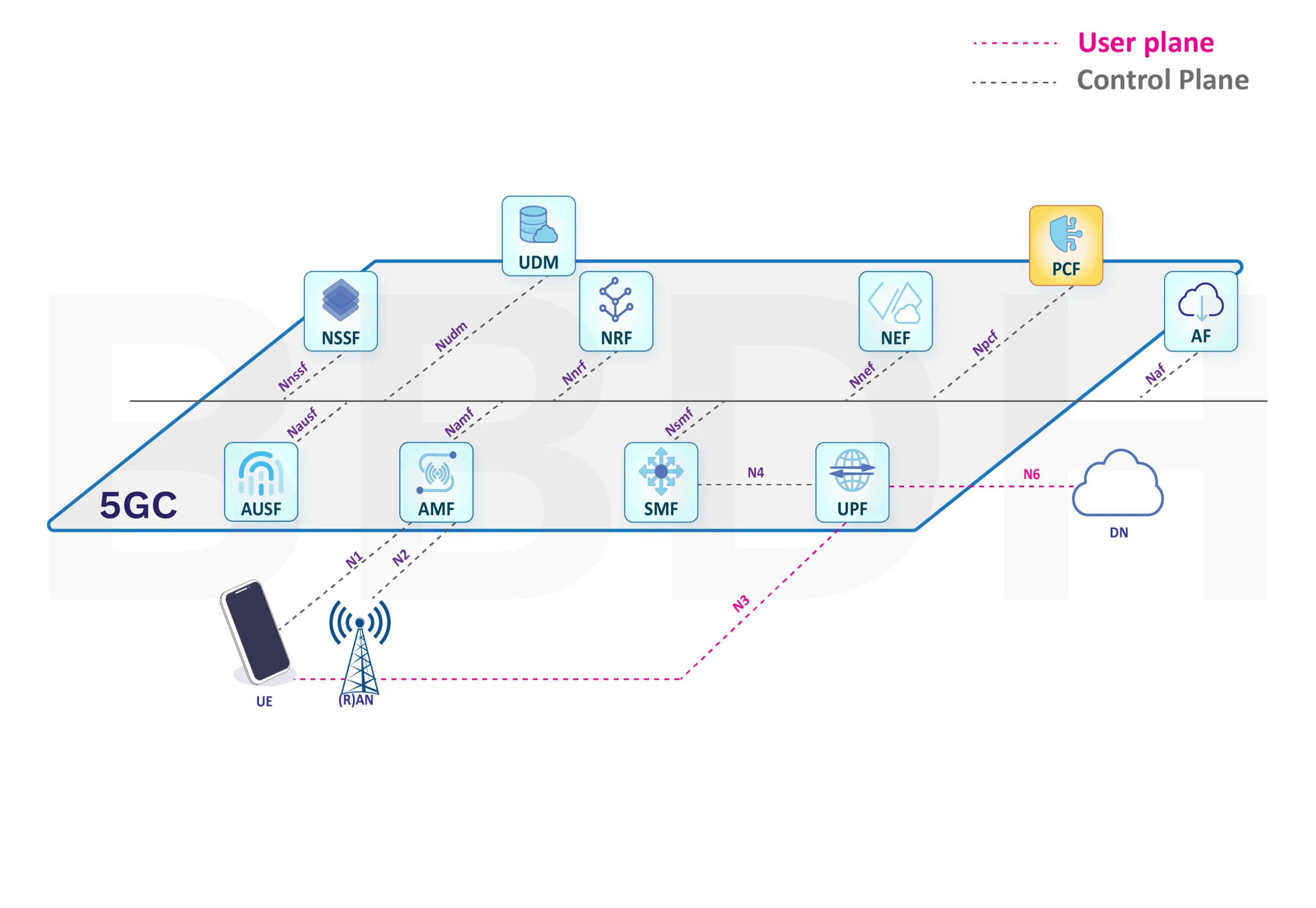
Policy and Charging Function (PCF)
PCF, or Policy Control Function, is a critical network function within the 5G Core (5GC) architecture. It is responsible for managing and enforcing policy decisions related to Quality of Service (QoS), access control, and other aspects of session management within a 5G network. Here’s a detailed description of PCF and its functions:
- Policy Decision and Enforcement:PCF is the key element responsible for making policy decisions based on various criteria, including user profile, service requirements, network conditions, and operator-defined policies. These decisions guide the behavior of the network and influence how services are delivered.
- QoS Policy Management:PCF defines and enforces QoS policies for different services and applications. It ensures that the required levels of service quality, such as latency, throughput, and reliability, are maintained according to the specified QoS profiles.
- Access Control Policies:PCF manages policies related to access control, determining which users and applications can access the network and under what conditions. It plays a crucial role in authorization and ensuring that only authorized devices and users are granted access.
- Flow-based Charging Control:PCF is involved in charging and accounting by implementing policies related to flow-based charging. It tracks and manages data flows to ensure accurate charging based on the service usage, helping with billing and accounting processes.

- Policy Interworking:PCF interacts with other network functions, such as AMF (Access and Mobility Management Function), SMF (Session Management Function), and UPF (User Plane Function), to ensure policy interworking. This integration helps enforce policies consistently across the network and deliver a seamless user experience.
- Dynamic Policy Adaptation PCF has the ability to dynamically adapt policies based on real-time network conditions, user behavior, and other contextual factors. This adaptability helps optimize resource utilization and enhance the overall efficiency of the network.
- Integration with Subscriber DataPCF integrates with the Unified Data Management (UDM) function to access subscriber profiles and preferences. It uses this information to tailor policies and services to the specific needs and requirements of individual users.
- Policy Exposure and APIs PCF provides policy exposure mechanisms and APIs (Application Programming Interfaces) for external applications and services. This allows third-party applications to request and influence network policies for specific users or use cases.
In summary, the Policy Control Function (PCF) is a vital component of the 5G Core architecture, responsible for defining, enforcing, and dynamically adapting policies related to QoS, access control, charging, and other aspects of session management. It plays a crucial role in ensuring the efficient delivery of services and the optimal use of network resources while adhering to defined policies and user requirements.

 Search
Search